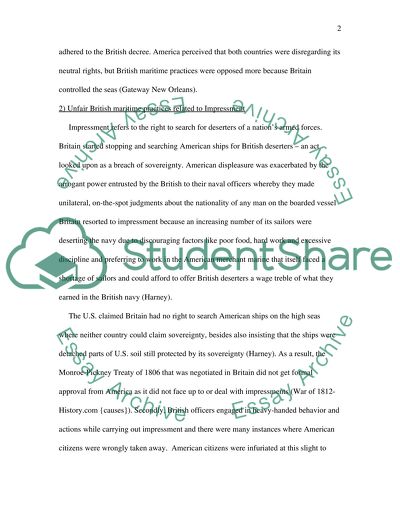Cite this document
(Causes and Impacts of the War of 1812 Essay Example | Topics and Well Written Essays - 2068 words, n.d.)
Causes and Impacts of the War of 1812 Essay Example | Topics and Well Written Essays - 2068 words. Retrieved from https://studentshare.org/history/1540658-causes-and-impacts-of-the-war-of-1812
Causes and Impacts of the War of 1812 Essay Example | Topics and Well Written Essays - 2068 words. Retrieved from https://studentshare.org/history/1540658-causes-and-impacts-of-the-war-of-1812
(Causes and Impacts of the War of 1812 Essay Example | Topics and Well Written Essays - 2068 Words)
Causes and Impacts of the War of 1812 Essay Example | Topics and Well Written Essays - 2068 Words. https://studentshare.org/history/1540658-causes-and-impacts-of-the-war-of-1812.
Causes and Impacts of the War of 1812 Essay Example | Topics and Well Written Essays - 2068 Words. https://studentshare.org/history/1540658-causes-and-impacts-of-the-war-of-1812.
“Causes and Impacts of the War of 1812 Essay Example | Topics and Well Written Essays - 2068 Words”, n.d. https://studentshare.org/history/1540658-causes-and-impacts-of-the-war-of-1812.


